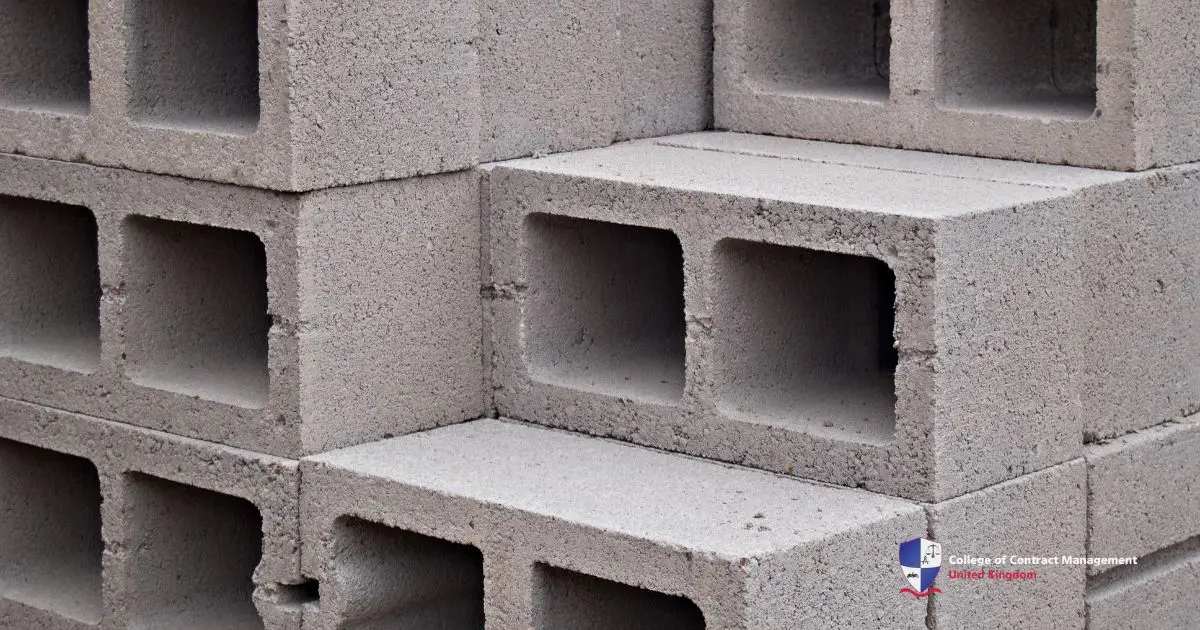Cinder blocks, or concrete blocks, are popular in construction because they're versatile, tough, and inexpensive. Whether you're putting up a small house, a big factory, or a business place, a cinder block is a solid choice for building a strong foundation for all sorts of projects.
What is a Cinder Block?
Manufacturers create cinder blocks using cement, coal cinders, and other materials like fly ash or crushed stone. Construction workers frequently use these blocks to construct foundations, walls, and other structural elements in residential and commercial buildings. A cinder block is lighter, more prominent, and often more affordable than bricks, typically made from clay. As a result, it is a popular choice for construction projects of all sizes.
Why Use Cinder Block in Construction?
Using a cinder block in construction has many advantages. Here are the top reasons why this material is the preferred choice of many builders and contractors.
1. Cost-Effective Solution
Cinder blocks are a great way to save money if you build something. They're cheaper than materials like steel or bricks but still do the job well. Plus, you don't need as many to build a wall because they're bigger than regular bricks. This means you can save on both labour and materials. So, if you want to stretch your budget, using cinder blocks is a smart and cost-saving choice.
2. Strength and Durability
One of the main reasons for using a cinder block in a construction project is its impressive durability and strength. A cinder block is capable of withstanding heavy loads. For this reason, it is ideal for structural components like foundations and walls. It is also resistant to cracking and can handle the pressure of heavy buildings without collapsing or warping. It can also stand the test of time, making a cinder block a go-to option for long-lasting structures. Buildings that use cinder blocks can last a decade or even longer with minimal maintenance.
3. Versatility
Cinder blocks are super versatile and can be used for all sorts of construction projects. Whether you're building walls that hold up a building, making a retaining wall, putting up a fence, or adding some decorative touches, cinder blocks can do the job. They come in different shapes, sizes, and finishes, so you’ve got plenty of options. Plus, you can mix them with other materials like brick, stucco, veneer, or stone to get the look you want while keeping things sturdy.
4. Resistance to Pests and Weather
Pests such as termites and rodents, which pose a significant concern for wood-based construction, find it difficult to damage a cinder block. Additionally, cinderblock is not susceptible to rotting or moisture damage, making it ideal for areas with harsh weather conditions like heavy rain or snow. Because the cinder block is so resilient, it reduces the likelihood of costly repairs and ensures the structure's longevity.
5. Thermal Insulation
Using cinder blocks is a smart move because they are great at keeping your place warm in the winter and cool in the summer. This means you might not need to use your heater or air conditioner as much, saving you money on your energy bills. Plus, building with cinder blocks helps make your home or building greener and can cut down costs in the long run.
6. Fire Resistance
Safety is super important when you're building things. Cinder blocks are a smart pick because they're really good at not catching fire. Since they don't burn, they're perfect for making walls that need to be fire-resistant. This is especially useful in places where fires are a common problem, like in factories or areas that get a lot of wildfires. Using cinder blocks in building projects makes the structures safer and more secure.
7. Soundproof
Cinder blocks are good at blocking noise, making them perfect for building projects where you want to keep things quiet. This is super useful for places like apartment buildings, schools, and businesses where it’s important to keep sound from travelling too much from one room or unit to another. Cinder blocks can help make buildings more comfortable and private for everyone, improving life overall.
Cinder Block vs. Other Building Materials
When comparing cinder blocks to other building materials, such as brick, wood, or steel, several distinct advantages make it a top choice for many projects; here’s how cinder blocks stack up against other common materials:
- Brick: Bricks provide a classic and attractive look, but they are smaller than cinder blocks. For this reason, they require more labour to install. A cinder block, on the other hand, is larger and easier to work with, generally more cost-effective for larger structures.
- Steel: Steel's strength and durability often make it the preferred choice for construction. Despite its higher cost and the need for specialised installation skills. cc, for a more cost-effective solution without compromising strength. As a result, cinder blocks serve as an excellent alternative for industrial and commercial projects.
- Wood: While people often choose wood for its beautiful appearance, it is more susceptible to damage from moisture, pests, and fire. A cinder block, on the other hand, offers superior durability, longevity, fire resistance, and durability.
Common Uses of Cinder Block in Construction
A cinder block can be used in a variety of construction applications. Some of the most common uses include:
- Foundations: Builders often use cinder blocks to construct the foundations of homes and buildings. As a result, it provides a stable and sturdy base.
- Walls: You can build both exterior and interior walls using cinder blocks, which provide strength and fire resistance.
- Fences: Cinder block fences are famous for their strength and ability to withstand weather conditions.
- Garages and sheds: Builders frequently select cinder blocks to construct garages, sheds, and outbuildings because of their cost-effectiveness and durability.
Environmental Benefits of Cinderblock
Aside from being durable and versatile, cinderblock is also an environmentally friendly option for construction. Manufacturers often recycle materials like fly ash and slag to create cinder blocks, thereby reducing waste. Moreover, buildings constructed from cinder blocks last longer, thus reducing the need for resources for repairs or replacements.
Using cinder blocks in construction can contribute to sustainable building practices, helping reduce the overall environmental impact of your project.
Join Us!
A solid education in Construction Management is crucial to start or advance in construction. The College of Contract Management offers various accredited courses to help you develop the skills needed to succeed in this competitive field. From learning about construction techniques and materials like a cinder block to mastering project management and contract negotiation, their programmes provide comprehensive training that prepares you for various roles within the construction industry.
The College of Contract Management offers flexible online courses, allowing you to study while working. Our college programmes are tailored to assist both newcomers and experienced professionals advance their careers by enhancing their skills. Their courses, emphasising practical applications, prepare you for site management, contract administration, and project leadership roles.
By enrolling in the College of Contract Management, you’ll learn about critical materials like cinderblock and gain the expertise needed to manage entire construction projects from start to finish. This comprehensive education will give you the tools and confidence to take your career to the next level.





